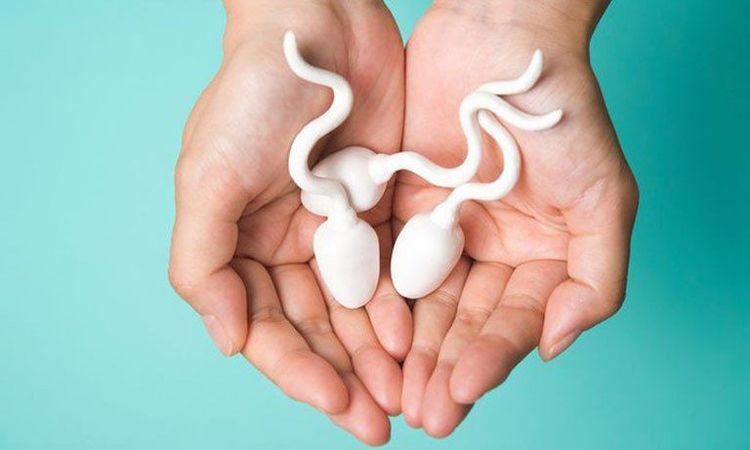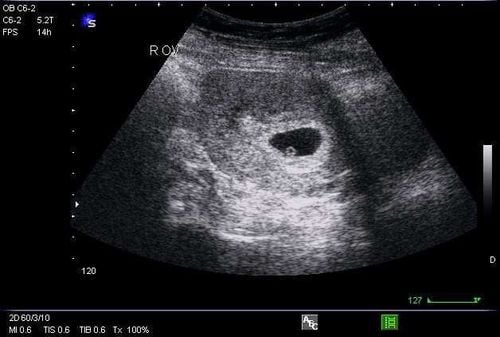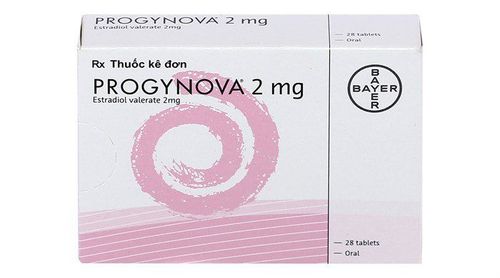Having too much sex can affect your chances of getting pregnant. It takes three months for male sperm to produce new sperm. So, having sex often can prevent your body from producing enough sperm for each ejaculation. So is this statement really true?
1. Can having too much sex affect your chances of conceiving?
Many couples have the misconception that they have to save a man's sperm until the day of ovulation to have sex. However, this is not true at all, because unnecessary stress about the timing of sex can lead to disturbances in a woman's menstrual cycle, not to mention the psychological effects during sex. marriage program.

Another mistake from couples is to assume that you should have less sex to increase your chances of conceiving. All scientific evidence shows that the more sex you have, the higher your chances of getting pregnant, even if they have sex several times a day and still ensure a man's sperm every time he ejaculates. healthiest state. The accumulation of sperm can weaken them and reduce their motility.
Having sex many times also makes the sperm count in each ejaculation decrease, but as long as you have one healthy sperm, you still have a high chance of conceiving. Every 2 or 3 days of sex is the ideal frequency for a couple to complete their plan to have a baby.
Trắc nghiệm: Bạn có hiểu đúng về dấu hiệu mang thai sớm?
Các dấu hiệu mang thai sớm không phải chỉ mỗi trễ kinh mà còn có rất nhiều dấu hiệu khác như xuất huyết âm đạo, ngực căng tức,… Điểm xem bạn biết được bao nhiêu dấu hiệu mang thai sớm thông qua bài trắc nghiệm này nhé!
2. How can I increase my chances of getting pregnant?
A good body will increase your chances of conceiving. Health problems such as diabetes, asthma, obesity and other medical conditions can all affect the fetus during a woman's pregnancy.
More than 80% of couples will be able to conceive within a year if they don't use any contraception and have a regular, healthy sex life (every two or three days).
Here are some risk factors that affect your ability to conceive:
2.1 Weight
Being overweight or underweight can both affect your chances of conceiving, too much or too little body fat Both can cause a woman's menstrual cycle to become irregular, greatly affecting the ability to conceive. Experts recommend future mothers to maintain a healthy weight, ie body mass index (BMI) between 20 and 25. Women with a body mass index above 30 or under 19 may have problems conceiving.
For men, a body mass index greater than 30 can cause their fertility to decline.
2.2 Alcohol and Tobacco
If a woman is pregnant or planning to become pregnant, alcohol should not be used. Not only for women, men who are planning to have children should not drink too much alcohol during this period. Excessive alcohol consumption can greatly affect a man's sperm quality.
Smoking, both active and passive, can reduce fertility in women.
Scientific evidence also shows that cigarette smoke also adversely affects the quality of men's sperm.

2.3 Best time to conceive
The best time to increase your chances of conceiving is having sex during ovulation. This usually occurs about 14 days after the first day of the menstrual cycle in women with regular cycles (usually 28 days).
To be able to get pregnant, the egg needs to meet and fertilize with sperm in the fallopian tube to form a zygote, then move to and implant in the uterus. When sperm are in a woman's body, they can live up to 5 days.
For the best chance of getting pregnant, fertility experts recommend; Couples should have sex every 2 to 3 days during a woman's cycle. If they can ensure this frequency, they absolutely do not need to calculate the time of intercourse to coincide with the day of ovulation.
For couples who have been trying and unable to get pregnant within a year, they should seek advice from doctors and fertility specialists.
If you intend to become pregnant and want to have a healthy pregnancy, both husband and wife should have their reproductive health checked 3-5 months before becoming pregnant.

The wife should:
- Get vaccinated before pregnancy (especially against rubella because rubella in pregnancy is extremely dangerous ).
- Genetic testing to screen for genetic diseases before pregnancy.
- Check for gynecological infections to avoid affecting the health of the mother and the fetus.
- Especially women over 35 years old who want to get pregnant (especially if they have never been pregnant) will have to have a very detailed health check because pregnancy at this age is common. problems: Ovarian failure, premature birth, higher risk of birth defects, placenta previa, preeclampsia.
The husband should:
- Check reproductive health, detect diseases of testicular atrophy, physiological weakness, weak sperm...
- Get tested for sexually transmitted diseases, especially those that cannot be cured, are extremely dangerous.
Vinmec currently has many comprehensive health care programs for couples, pregnant mothers and their unborn babies, including basic pre-marital examination packages, advanced pre-marital examination packages, and maternity packages.
Vinmec has a team of experienced doctors in the fields of obstetrics and gynecology, IVF, stem cells, gene technology, capable of synchronously and comprehensively deploying the most advanced assisted reproductive techniques today.
For specific information about fertility and maternity packages at Vinmec, please contact the hospitals and clinics of Vinmec health system nationwide.
Please dial HOTLINE for more information or register for an appointment HERE. Download MyVinmec app to make appointments faster and to manage your bookings easily.
Reference sources: babycenter.com, webmd.comSEE MORE
GOOD SEX CAN HELP YOU BETTER? 6 sexual mistakes women often make and why "sex" how much is enough?













